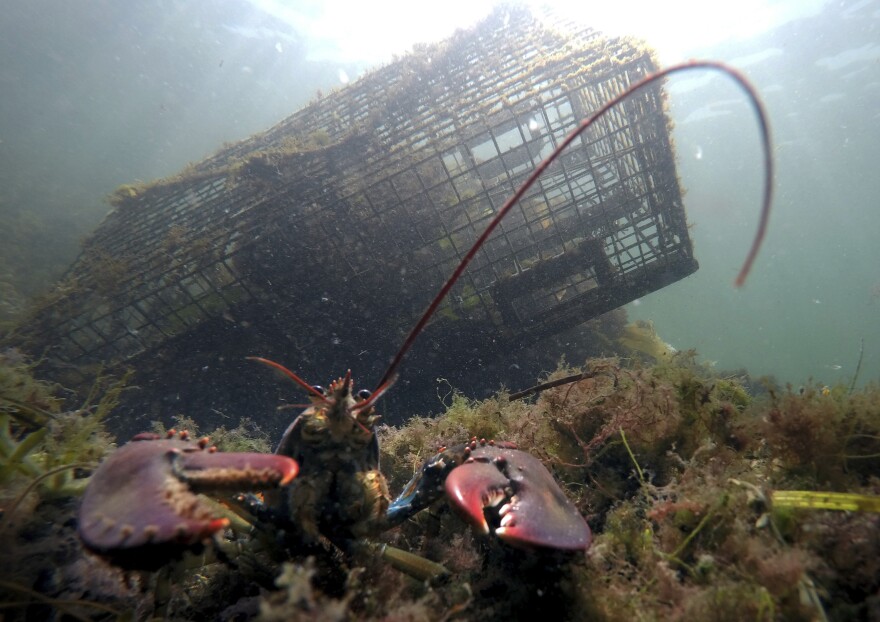Gov. Janet Mills and Maine's congressional delegation are calling on the international group Seafood Watch to reverse its decision that red-listed the American lobster earlier this week.
The sustainable seafood program said Tuesday that lobster fishing gear poses a threat to the endangered right whale population.
But in a letter to the board that governs the Monterey Bay Aquarium, which oversees the Seafood Watch program, Mills and the congressional delegation called the decision "irresponsible" and a "reckless piece of activism that will inflict substantial negative real-world consequences on an important and iconic industry in Maine."
Mills and independent Sen. Angus King were among those who gathered at the Portland pier Friday to denounce the listing.
King said Seafood Watch overlooked the economic effects the designation — which called the "most irresponsible action" he's seen in public office — could have on Maine lobstermen. At least two companies have taken lobster off their menus, and he believes more will follow suit.
"Make no mistake this is no joke. This isn't an abstract," King said. "This isn't a study somebody issued. These people are trying to put this industry out of business. They are telling people all over the country and the world not to buy Maine lobsters."
Curt Brown, a marine biologist and lobsterman with Ready Seafood, said the group ignored the fact that Maine gear has not been documented in a right whale entanglement since 2004. Lobstermen have taken a variety of steps to protect right whales, such as removing more than 30,000 miles of rope from Gulf of Maine, Brown added.
"We mark all our gear so that in the unlikely event of an entanglement, we know exactly where that entanglement occurred," he said.
But Gib Brogan, who leads the campaign to protect right whales in the United States for the nonprofit Oceana, said the Seafood Watch listing is appropriate based on the risks to whales.
"There may not be direct evidence, the smoking gun, that can attribute an entanglement to Maine fishing gear," said Brogan. "But we know the whales are in the area where the fishery operates, and we know the gear is there, and the combination equals risk."
Brogan said the Seafood Watch determination is sound based on science and current federal policy, which he feels is insufficient to protect the whales.
The listing from Seafood Watch came days before a federal judge denied a bid by lobstermen and the state of Maine to block federal rules aimed at protecting the endangered whale population.
Maine Public's Carol Bousquet contributed reporting.





